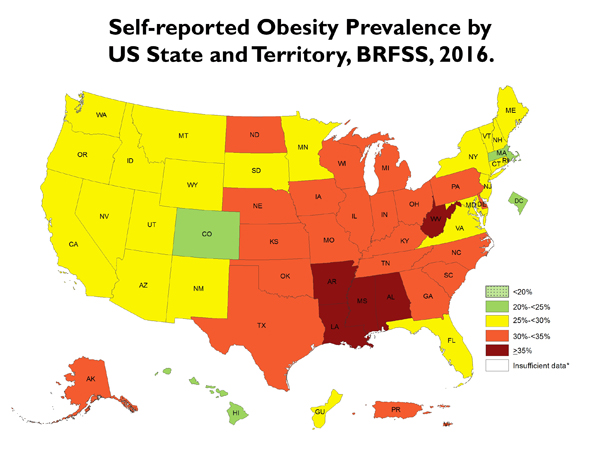Reducing Obesity and its Risk Factors via Health Education

According to the most recent statistics from the Centers for Disease Control, more than 36.5% of U.S. adults are living with obesity. This chronic condition has historically been associated with diabetes, hypertension, high cholesterol, stroke, and heart disease, some of the leading causes of preventable death.
Unfortunately, factors such as disparities in economic status and education levels can present difficulties that make obesity and its comorbidities far less preventable for some populations. As a Health Educator, I find that, prior to receiving consistent health education, many of my patients lack knowledge of what constitutes a healthy diet or what steps to take to live a healthy lifestyle, especially in the face of financial barriers. One of the many reasons I chose to join National Health Corps was to help counteract these issues by promoting health and wellness on a population scale and working with clients one-on-one to create a plan to achieve a healthier lifestyle.
One patient of mine, Brandon*, has benefited tremendously from such services, both physically and emotionally. Brandon turned to food as a replacement for his alcohol addiction shortly after gaining sobriety. While he reported feeling much better and much more in control of his life following sobriety, he admitted that as a result of poor eating habits he likely developed an addiction to food and mindless eating, possibly contributing to his morbid obesity. After discussing his history and goals in his first appointment, we scheduled a series of recurring appointments every month so that we could track his progress, discuss his concerns, and modify his goals as necessary. I could also see the determination and willingness to learn in Brandon's demeanor and knew that consistently working together would serve as a great source of motivation for him. Recently, Brandon lost approximately 20 pounds in the span of three months, and the pride beamed on his face - for a split second! After a few minutes, Brandon decided that it wasn't enough in terms of his end goal and had quickly already set an even greater goal for weight loss and healthy eating that he intended to work toward by his next appointment.
For patients like Brandon, health and nutrition education that is tailored to their specific situation plays a large role in reducing obesity, its risk factors, and possibly its comorbidities on an individual level. Most importantly though, the change in lifestyle promotes enhanced emotional health and an excitement for cooking and exercising that can transform the entire family, as well as friends and neighbors who witness the change. I look forward to continuing to promote impactful health and nutrition education such as this instance, both as a National Health Corps member and beyond.
*Patient's name has been changed
This blog post was written by NHC Chicago 2017-18 member Sandra Folarin.
Sandra is a Health Educator at Heartland Health Center - Uplift/Wilson.